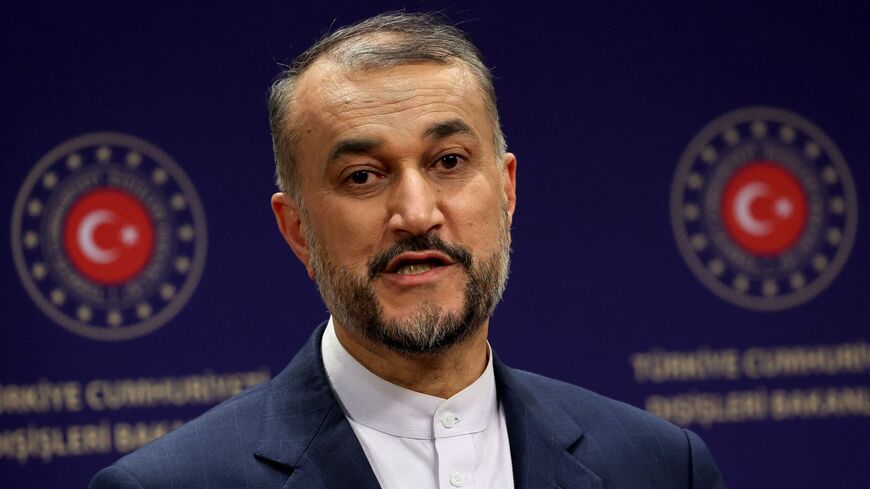Turkey and Iran agreed to increase cooperation on Syria on Tuesday amid an ongoing thaw between Ankara and Damascus.
Iran’s Foreign Minister Hossein Amir-Abdollahian met with Turkish President Recep Tayyip Erdogan and his Turkish counterpart, Mevlut Cavusoglu, during his visit to Ankara.
Speaking after the meeting, Cavusoglu said they discussed several bilateral issues and regional developments, including the latest rapprochement between Turkey and the Syrian government.
“In our meeting today, we stressed that Iran's contribution to this process is very important. Our president personally also stressed this. … In the upcoming period, we will work in close cooperation with Iran on steps to be taken and in a bid to see these steps come to fruition.”
Amir-Abdollahian, in turn, said his country has been “very pleased” with “the transformation” in the ties between Ankara and Damascus.
“We think that any positive development between Ankara and Damascus will benefit our region and our countries,” he said, adding that Tehran would do its best to achieve a reconciliation between the two sides.
Amir-Abdollahian’s visit came amid Russian-mediated efforts to convene a meeting between the Syrian and Turkish foreign ministers following the Turkish defense and intelligence chiefs’ landmark meeting with their Syrian and Russian counterparts in Moscow last month. The talks marked the first after more than a decade of hostilities between Ankara and Damascus. The trilateral talks between Ankara, Damascus and Moscow come as Turkey threatens to launch a fresh ground offensive against the Syrian Kurdish groups that it deems as "terrorists."
Arguing that the Syrian civil war has led to a "vacuum which has been filled by the terrorist groups," Cavusoglu said, "As both Iran and Turkey, we strongly support Syria's border and territorial integrity and political unity. … But from now on, concrete steps need to be taken."
The two top diplomats also brought up the contentious issues that lead to strains in Turkish-Iranian ties.
Cavusoglu called for increased cooperation on Iraq, saying the trilateral mechanism between Ankara, Baghdad and Tehran needed to be renewed. “We expressed in our meetings today that we, as Turkey and Iran, can make a significant contribution to the stability of Iraq,” he said.
Amir-Abdollahian, for his part, raised Iranian concerns over the disputed Nagorno-Karabakh region between Azerbaijan and Armenia.
“Any geopolitical and border changes should not be allowed in the region. We also stress the importance of keeping the transportation routes between the countries of the region open,” the Iranian foreign minister said. Tehran fears a potential transport corridor that will link Azerbaijan and Turkey will cut off its land link with Armenia and harm its trade.
“Keeping the trade routes open will help to maintain the commercial relations between the countries and the prosperity in our region,” Amir-Abdollahian added.
He also called for fair distribution of water flow from the transboundary Aras River as part of Tehran’s long-held complaints over the Turkish dams on the river that the Iranian side has long been arguing reduce water flow to Iran.
The two countries also agreed to deepen their bilateral trade ties as part of their mutual goal of reaching a $30 billion trade volume.
Amir-Abdollahian said the two countries would hold the new round of the High-Level Strategic Cooperation Council between Ankara and Tehran during Iranian President Ebrahim Raisi’s planned visit to Turkey. He added that the sides have begun working on preparations to agree on a date.
Amir-Abdollahian slammed the Taliban's ban on women’s education in Afghanistan but dismissed international criticism of his country over the ongoing protests in Iran, claiming that the unrest in the country was an outcome of “a Western conspiracy.”






